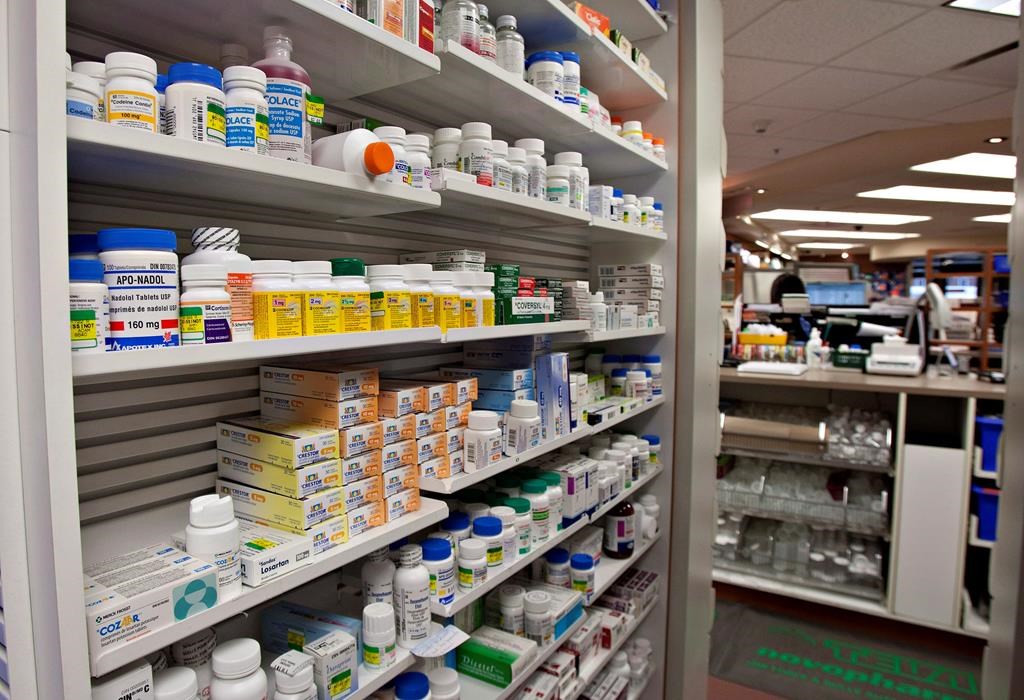We’ve had reports, election promises, advisory councils and investigations over the years, all examining the question of prescription drug coverage for Canadians.

But despite decades of discussion, we don’t have national pharmacare.
Pharmacare has made it into the election discussion this campaign, though, with some parties already promising they will implement a pharmacare program.
Here’s a look at the policy and where we stand so far.
What is pharmacare?
Pharmacare essentially means some kind of system in which the government helps pay for Canadians’ prescription drugs.
What that could actually look like is very much up in the air. It could be a “fill-in-the-gaps” approach, in which people who don’t have private insurance or insurance through their work obtain their drugs through the government.
Or, it could be the other extreme: the government pays for everyone’s prescription drugs. Or, various schemes in between.

Why do some people want pharmacare?
According to the report of the Advisory Council on the Implementation of National Pharmacare, issued in June, one in five Canadians struggles to cover the cost of prescribed medication.
Some form of pharmacare would help those people and help the health care system, said Steve Morgan, a professor in the School of Population and Public Health at the University of British Columbia, who has long studied pharmacare.
“Every national commission that has seriously looked at this question all the way back to the 1940s has recommended that if you’re going to have a universal public health insurance system, it should include prescription drugs because it makes absolutely no sense to pay for medical services and hospital care but not to pay for the medicines that actually keep people out of the doctor’s office and out of the hospital,” he said.
Advocates also suggest that it would help to save money. Under our current system, the advisory council found, Canadians pay the third-highest prices for drugs in the world. If everyone was to negotiate together and do a bulk purchase for the whole country, we could get a better deal, they reasoned.

Get weekly health news
“The evidence is very clear that a single-payer pharmacare system in this country would give Canada sufficient power that we would be saving billions of dollars a year,” Morgan said.
Various health organizations and health care workers are behind the idea. Recently, a group of 1,200 health and public policy experts signed a public letter asking for pharmacare to be considered this election.
Canadians seem to like the idea, too. A recent survey by Heart & Stroke and the Canadian Federation of Nurses’ Unions — two organizations that have long advocated for pharmacare — found that almost nine in 10 Canadians supported a national government-run pharmacare program.
What are the objections?
A big one is cost. Paying for people’s drugs would be expensive, and the federal government might not want to take that on, or figure out how to share costs with the provinces.
Another objection is that health care is a provincial responsibility, not a federal one, so having a federal program would step on the provinces’ toes.
“It’s important to recognize the complexity of the Canadian federation,” Morgan said. Moving forward on Medicare took a “bold move,” he said, and any federal program would need to get the provinces on board.
Where are we at with it?
In the last two years, there have been a House of Commons committee report and a report from a Special Advisory Council on the Implementation of Pharmacare. That latter report provided specific recommendations on how to implement a pharmacare policy, if a government wanted to.

Aside from these reports, the government has taken steps to regulate drug prices. In August, it announced regulatory changes that it says allow the Patented Medicine Review Board to better determine whether a given drug price is excessive. The government said this was a first step toward national pharmacare.
What are the parties saying?
Before the election was even called, the NDP promised that it would implement national pharmacare, a position it has held for a long time.
“We have a crisis in health care. It’s time that changed,” party leader Jagmeet Singh said in June. “It’s time for the party that brought Medicare to Canada to take another major step forward.”
The Green Party has also promised a pharmacare program, saying in its platform that the program would cost $26.7 billion in its first year.
The Conservatives aren’t enthusiastic about the idea. Party Leader Andrew Scheer said, in response to the council’s report, that he didn’t trust the Liberals to implement a multi-billion dollar spending program like pharmacare.
As to his party’s plan, Scheer said that the government could improve bulk purchasing of drugs and would work with the provinces to ensure that the registry of pharmaceuticals is cohesive and the prices are affordable for Canadians.
“It’s important to note it’s about the gap. It’s about the people who don’t have access to pharmacare,” he said. A Conservative government would focus on that group, he added.

The Bloc Quebecois has promised in its platform to change how drug prices are determined. Right now, the party said, the federal government compares new drug prices in Canada to four other countries. The Bloc would like to have the U.S., a notoriously expensive country, taken off that list. It’s worth noting that Quebec, where the party campaigns, already offers prescription drug insurance for people who don’t have a private plan and some other individuals.
In its platform, the Liberal party is promising to “take the critical next steps to implement national universal pharmacare so that all Canadians have the drug coverage they need at an affordable price.” It does not, however, provide much in terms of details of what exactly this program might look like.






Comments
Want to discuss? Please read our Commenting Policy first.